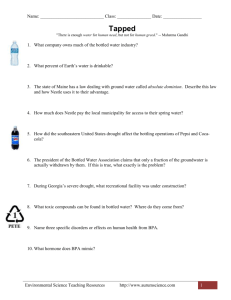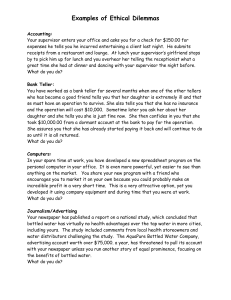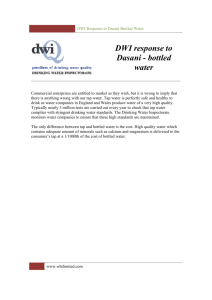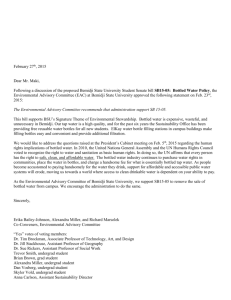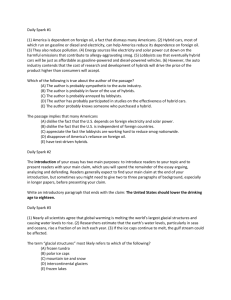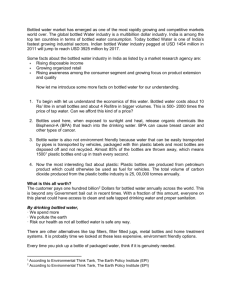Economic impact of bottled water
advertisement
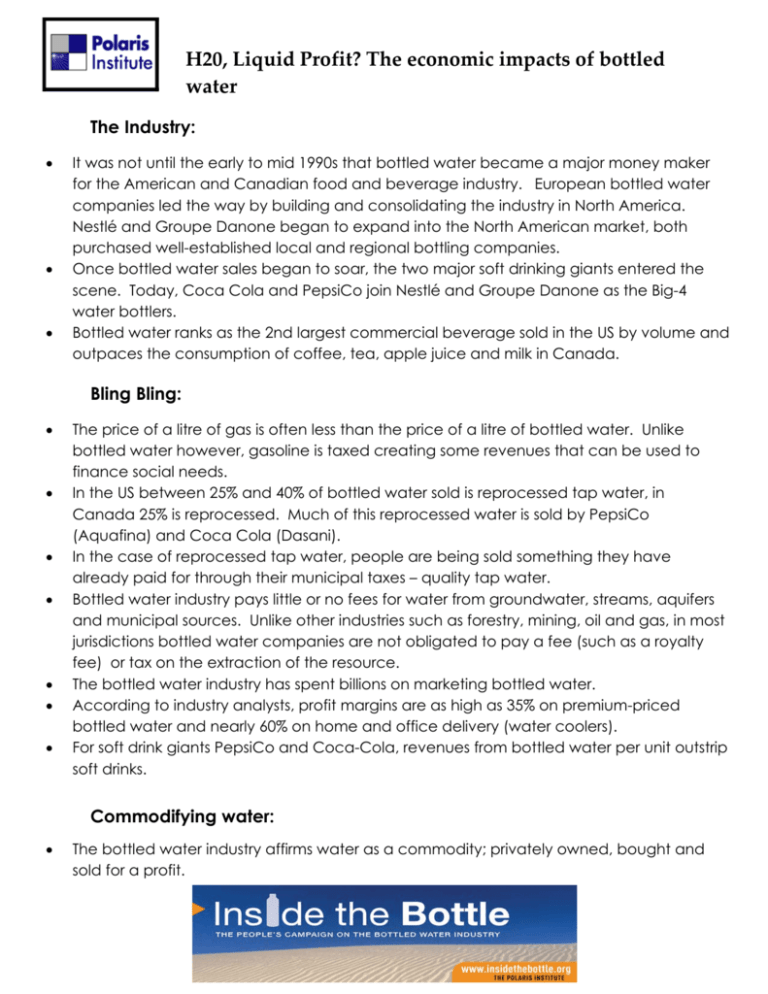
H20, Liquid Profit? The economic impacts of bottled water The Industry: • • • It was not until the early to mid 1990s that bottled water became a major money maker for the American and Canadian food and beverage industry. European bottled water companies led the way by building and consolidating the industry in North America. Nestlé and Groupe Danone began to expand into the North American market, both purchased well-established local and regional bottling companies. Once bottled water sales began to soar, the two major soft drinking giants entered the scene. Today, Coca Cola and PepsiCo join Nestlé and Groupe Danone as the Big-4 water bottlers. Bottled water ranks as the 2nd largest commercial beverage sold in the US by volume and outpaces the consumption of coffee, tea, apple juice and milk in Canada. Bling Bling: • • • • • • • The price of a litre of gas is often less than the price of a litre of bottled water. Unlike bottled water however, gasoline is taxed creating some revenues that can be used to finance social needs. In the US between 25% and 40% of bottled water sold is reprocessed tap water, in Canada 25% is reprocessed. Much of this reprocessed water is sold by PepsiCo (Aquafina) and Coca Cola (Dasani). In the case of reprocessed tap water, people are being sold something they have already paid for through their municipal taxes – quality tap water. Bottled water industry pays little or no fees for water from groundwater, streams, aquifers and municipal sources. Unlike other industries such as forestry, mining, oil and gas, in most jurisdictions bottled water companies are not obligated to pay a fee (such as a royalty fee) or tax on the extraction of the resource. The bottled water industry has spent billions on marketing bottled water. According to industry analysts, profit margins are as high as 35% on premium-priced bottled water and nearly 60% on home and office delivery (water coolers). For soft drink giants PepsiCo and Coca-Cola, revenues from bottled water per unit outstrip soft drinks. Commodifying water: • The bottled water industry affirms water as a commodity; privately owned, bought and sold for a profit. H20, Liquid Profit? The economic impacts of bottled water • • Cultivating consumers’ willingness to pay more for a litre of bottled water than for a litre of gas helps set the stage for the public acceptance of the privatization of water services. Commodifying and privatizing water threatens to cause a divide between those who can and can not pay for water. Examples of water privatization in the Global South and North provide evidence in support of this concern which has serious social justice implications. For more information about the social impacts of privatizing water services, refer to ‘Accessory or Human Right: the Social Impacts of Bottled Water.’
